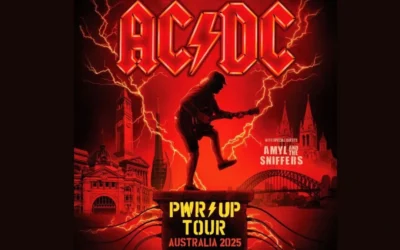What is a real fan?
Lately, big time artist have been referring to “real fans” when they discuss the lack of tickets for their shows. They want their “real fans” to attend, and feign true sorrow when the “real fans” can’t get tickets.
The latest is Eric Church, who is on a 35 gig, four month tour that some have described as a “traveling country music spectacle.” Church has declared war on ticket brokers and resellers on behalf of his “real fans.” His goal is to block scalping and keep prices down so his “real fans” can have affordable access. To achieve this, he is using paperless tickets, which require the concert goer to provide photo identification and the purchasing credit card to get into the concert. Opponents argue that paperless ticketing only makes the process more cumbersome and difficult for fans. As an example, if four tickets are purchased on one credit card, all four of those ticket holders must enter the arena together. If a father living in California purchases a ticket for his daughter in Nashville, she will have to jump through additional hoops to use that ticket without the original credit card.
In the USA Today, Fielding Logan, Church’s manager, says paperless tickets are the cure to limiting scalpers. He said that his team is taking a “zero-tolerance” policy on purchasers transferring tickets. This policy is supposed to make more tickets available for fans. Yet, in the same breath, he also admitted that he sets aside at least 4,000 lower bowl seats. These seats are not available for the regular fan to purchase. Church is reserving premium seats to be sold through Ticketmaster at “market value” with proceeds donated to Chief Cares, his and wife Katherine Church’s new charitable organization. Essentially, he will be selling the best seats in the house through Ticketmaster, who will no doubt sell a majority of those seats through its secondary ticket seller, TicketsNow, at hugely inflated prices.
This whole operation is being run by Logan, who in March, 2013 was accused of offering free concert tickets to influence a witness’ testimony before a legislative committee in Nashville. Nashville attorney John Ray Clemmons wrote to the committee chairman, stating that “Fielding Logan sat next to me after his testimony and began arguing that I was on the wrong side of the issue, that I did not understand it and that I should not testify.” Clemmons added, “He then twice offered me what he described as really good tickets to the upcoming Black Keys concert…. as a donation to my nonprofit. It is clear that he offered me these tickets just before my testimony to keep me from opposing the bill,” Clemmons concluded.
Jon Potter, head of the Fan Freedom Project, said “What is clear is that the proponent of the bill, who is the manager of some of the most prominent bands in Tennessee, offered a handful of tickets to an opponent of the bill.”
Logan confirmed that he offered the tickets, but only to “demonstrate that paperless tickets can be transferred for the purpose of helping charities.”
What this latest attack on ticket brokers’ shows us is that the double standards do exist: if you are the artist or his manager and own the tickets, you can sell them for whatever price you want to whomever, transferring the tickets under the table at a legislative hearing to influence testimony pretty easily. For the “real fans”, it’s not so easy.



